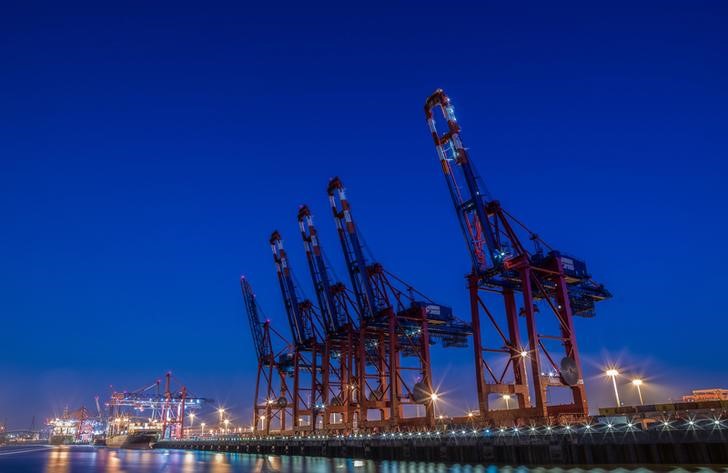By Joseph Nasr
BERLIN (Reuters) - German industrial output and exports fell in April, data showed on Friday, adding to signs that Europe's largest economy started the second quarter on a weak footing.
Data from the Economy Ministry showed output fell by 1.0 percent, well below a Reuters forecast for a rise of 0.3 percent. Separate data from the Federal Statistics Office showed exports fell by 0.3 percent in April while imports rose 2.2 percent.
On Thursday, data showed industrial orders fell unexpectedly by 2.5 percent.
"The German economy will only make timid headway in the second quarter," VP Bank chief economist Thomas Gitzel wrote in a note to clients. "Weak industrial orders, weak exports and disappointing industrial production are a bitter setback."
Industrial output, orders and exports have fallen in three of the first four months of the year. This weakness has so far been mainly linked to long public holidays, cold weather and flu epidemics.
DEEPER CONCERNS?
But economists are starting to consider more deep-seated factors.
Sophia Krietenbrink, an analyst with the DIHK Chambers of Industry and Commerce said concerns about protectionist trade policies were creating uncertainty for German companies.
"It seems as if supply-side constraints are increasingly hampering Germany’s growth prospects," added Carsten Brzeski of ING Diba in a note to clients.
"Both equipment and labor are currently at their highest levels ever and are limiting factors to production. Against this background, more investment seems to be the best and easiest way forward."

Friday's data also showed the trade surplus shrank to 19.4 billion euros in April from a downwardly revised reading of 21.6 billion euros in March. Analysts had expected a surplus of 21.0 billion euros.
(editing by John Stonestreet)